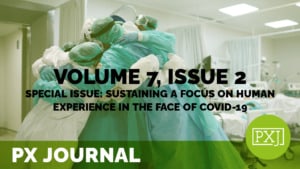Improved Patient Communication with Systematic Whiteboard Use

A patient and staff needs assessment at Rush University Medical Center found that over 80% of both groups found the whiteboards useful, but the layout of the whiteboards made their use challenging. Additionally, we found a lack of consistency in monitoring and updating the whiteboard on a daily basis. As a result, we undertook an initiative to redesign our board, train staff in the utility of a whiteboard, its usefulness to staff, patients and family, and began a routinized audit of its use for timeliness and accuracy.
Related content
-
 Infrastructure & Governance
Infrastructure & GovernanceStorytelling at board meetings: A case study of co-developing recommendations
In healthcare, stories shared by patients often provide details and insights into experiences of illness and care. Stories are a way to educate healthcare providers and others to improve care and systems to become more patient and family centred and to better meet patients’ needs and priorities. Telling stories may bring benefits to both storytellers
Learn more -
 Infrastructure & Governance
Infrastructure & GovernanceA comprehensive call center supporting safe, efficient operations during a pandemic
Learn more -
 Infrastructure & Governance
Infrastructure & GovernanceWell-Rounded: A Fresh Approach to Training Volunteers for Inpatient
Learn an innovative approach to training inpatient hospital volunteers in a consistent, effective manner.
Learn more
